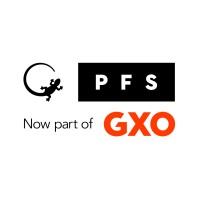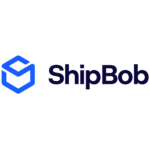Top 3PL Companies in Fulton County
Last Updated: January 2026







We will connect you with a 3PL based on requirements, and product-fit.
Request QuotesWhat Is a 3PL?
A third party logistics (3PL) provider offers end-to-end logistics services including inventory management, warehousing services, storage solutions, distribution services, transportation, and fulfillment services. These providers operate modern warehouses equipped with advanced security systems and climate controls to safely accommodate a variety of goods, including those requiring specialized handling. In Fulton County, home to Atlanta, businesses across various industries rely on 3PLs to streamline supply chain operations, reduce operational costs, and ensure customer satisfaction. Fulton County’s strategic location, expansive logistics infrastructure, and strong rail and highway access make it a prime logistics hub in the Southeast, with warehouses equipped to handle a wide range of goods.
Benefits of Using a 3PL in Fulton County
Strategic Location and Infrastructure
Fulton County—anchored by Atlanta—sits at the crossroads of major highways (I‑75, I‑85, I‑285) and key rail lines. This conveniently located region enables fast distribution throughout the South, East Coast, Midwest, and beyond. With easy airport access (ATL) and proximity to intermodal terminals, 3PLs here can handle international shipments and domestic freight with ease.
Scalable Warehousing and Storage Solutions
Providers offer expansive warehouse space and modular racking systems to handle everything from retail inventory to oversized industrial goods, accommodating items of various sizes and shapes. Facilities cater to specific needs, including climate control, bulk storage, mezzanine levels, and hazardous materials storage zones.
Some facilities also offer secure, climate-controlled storage specifically for electronics, ensuring advanced protection for sensitive electronic devices and components.
Enhanced Supply Chain Efficiency
Through automated inventory management tools, real-time dashboards, and integrated client systems, Fulton County 3PLs achieve high supply chain efficiency. Process controls ensure swift inbound processing—cross-docked goods are redirected within hours, reducing storage durations and minimizing costs.
Personalized Order Fulfillment & E-commerce Support
Leading e-commerce fulfillment services include pick-pack, kitting, bagging, and light assembly, with tailored options such as packaging customization, subscription boxes, and bundling. Once orders are packed, they are shipped promptly through preferred carriers to ensure timely delivery. Personalized service ensures each client gets end-to-end logistics tailored to their needs.
Cost Savings & Optimized Operations
By combining shared-volume shipping, cross-docking, and streamlined handling, 3PLs help clients reduce operational costs significantly. Pricing models break down by storage, handling, shipping distance, packaging, and value-added services—enabling transparent cost control and improved margins.
Preferred Carrier Networks & Logistics Capital
Top providers maintain relationships with a range of preferred carriers, including truckload, LTL, rail, and ocean freight partners. These alliances, along with investments in forklifts, dock-levelers, and picking systems, give Fulton County 3PLs an edge in logistics capital and capacity.
Quality Control & Compliance Standards
Certified and audited to meet compliance standards—including OSHA, EPA, and hazardous materials regulations—providers ensure safe, secure operations. Quality control processes include inbound inspection, cycle counting, shipping verifications, and periodic audits for maintaining integrity and high quality standards.
Specialized Services & Hazardous Materials Handling
For companies dealing with chemicals, pharmaceuticals, or industrial goods, 3PLs offer specialized services including hazmat storage, temperature-controlled handling, and secure segregation zones, all managed by trained personnel.
What Type of Companies Use a 3PL in Fulton County?
Online Retailers and DTC Brands
Growing e-commerce businesses use Fulton County 3PLs for fast order fulfillment, cross-docking of inbound goods, flexible kitting, and rapid shipping to customers across the Southeast.
Large Retailers & Distribution Centers
Retail chains send pallets via consolidated freight, use cross-docking to expedite store replenishment, and depend on automated systems to manage complex product assortments.
Industrial and Manufacturing Firms
These clients leverage warehouse space for raw material staging, kitting for assembly lines, management of oversized inventory, and cross-country freight forwarding.
Hazardous Chemicals & Pharmaceuticals
Business handling regulated products rely on providers’ hazmat-certified zones, compliance expertise, and secure inventory tracking.
Food & Beverage Producers
Suppliers benefit from bulk storage capacity, flash-frozen shipping, bagged kitting, and cold-chain management—with minimal costs when warehouse space is used efficiently.
Seasonal Marketers & Manufacturers
3PLs enable companies to scale capacity temporarily, avoiding year-round facility costs while handling spikes in demand with flexible fulfillment and storage plans.
Things to Look for in a 3PL Provider
Storage Capacity and Layout
Assess warehouse layout (racking, temperature zones, hazardous segregations), dock access, automation systems, and scalability.
Logistics Infrastructure
Confirm access to highways, rail, airport connections, intermodal yards, and proximity to interstate networks for distribution and velocity.
Fulfillment & Cross-Docking Options
Look for pick-pack speed, kitting services, customized packaging, and drop-and-go cross-dock options that reduce handling time and costs.
Inventory Management and System Integration
Ensure WMS platforms with API support can sync inventory levels, support real-time visibility, and automate ordering triggers to your systems.
Quality and Compliance Procedures
Inspect audit reports, QC standards, and compliance documentation for regulated goods or shipments requiring specialized handling or certifications.
Cost Structures and Transparency
Evaluate pricing that reflects storage, handling, kitting, hazardous materials handling, shipping rates, and value-added services for accurate TCO assessment.
Preferred Carrier Access
Ask about carrier volumes, freight lane coverage, negotiated rates, and reliability. Providers should offer multiple carrier options to suit each shipment type.
Security & Risk Management
Ensure 3PL’s facility has surveillance, restricted access, safety protocols, and insurance coverage aligned with your risk profile.
How to Choose the Right 3PL Provider
Define Business and Growth Objectives
Clarify whether your focus is reducing delivery times, supporting regulated materials, scaling quickly, or lowering logistics costs. Clear strategic goals help you match provider capabilities to your growth path.
Conduct Facility Tours and System Demos
Visit target facilities to evaluate storage zones, cross-dock operations, loading access, packaging workflows, and safety infrastructure. Ask for WMS/TMS demos including reporting and live dashboard access.
Evaluate Transportation and Carrier Networks
Request the provider’s list of preferred carriers and check lane coverage and rate competitiveness for your key shipment paths (e.g., Atlanta to East Coast or Midwest).
Pilot Fulfillment with Test Orders
Run a small pilot order set—cover inbound receipt, inventory, pick-pack, kitting, shipping—and measure fulfillment accuracy, delivery times, and handling costs.
Review Cost Models & Value Add
Ask for full quotes comparing storage fees, pick/pack costs, cross-docking fees, packaging, shipping, and special handling. Check whether the total cost aligns with projected volumes and service levels.
Assess Technology and Reporting
Look at features such as real-time inventory dashboards, customized KPIs, shipment status tracking, daily reporting, and exception notifications.
Test Cultural Fit & Team Alignment
During visits, meet operations, fulfillment managers, and customer service staff. Ensure their values (e.g., quality, safety, service) align with your expectations—important for long-term relationships.
Measure ROI and Operational Metrics
Track cost per order, picking accuracy, storage utilization, lead times, and on-time delivery rates. Use data to adjust workflows, rationalize service levels, and scale effectively with provider support.




